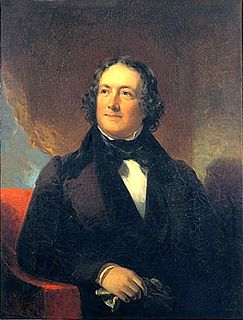A Quote by Thomas Aquinas
In a false person, sacraments do not produce any effect.
Related Quotes
In the performance of an illocutionary act in the literal utterance of a sentence, the speaker intends to produce a certain effect by means of getting the hearer to recognize his intention to produce that effect; and furthermore, if he is using the words literally, he intends this recognition to be achieved in virtue of the fact that the rules for using the expressions he utters associate the expression with the production of that effect.
THERE is no method of reasoning more common, and yet none more blameable, than, in philosophical disputes, to endeavour the refutation of any hypothesis, by a pretence of its dangerous consequences to religion and morality. When any opinion leads to absurdities, it is certainly false; but it is not certain that an opinion is false, because it is of dangerous consequence. Such topics, therefore, ought entirely to be forborne; as serving nothing to the discovery of truth, but only to make the person of an antagonist odious.
When a person thinks, I am a Christian, this other person is a Muslim, therefore he is my enemy, or I am a Muslim, this other person is a Hindu, therefore she is my enemy, they reveal their own lack of spiritual depth. No religion teaches this, and any understanding of any religion that adopts this divisive attitude proves itself false by doing so.
I honestly do not know if civil disobedience has any effect on the government. I can promise you it has a great effect on the person who chooses to do it. Martin Sheen The burning of rebellious thoughts in the little breast, of internal hatred and opposition, could not long go on without slight whiffs of external smoke, such as mark the course of subterranean fire.





































